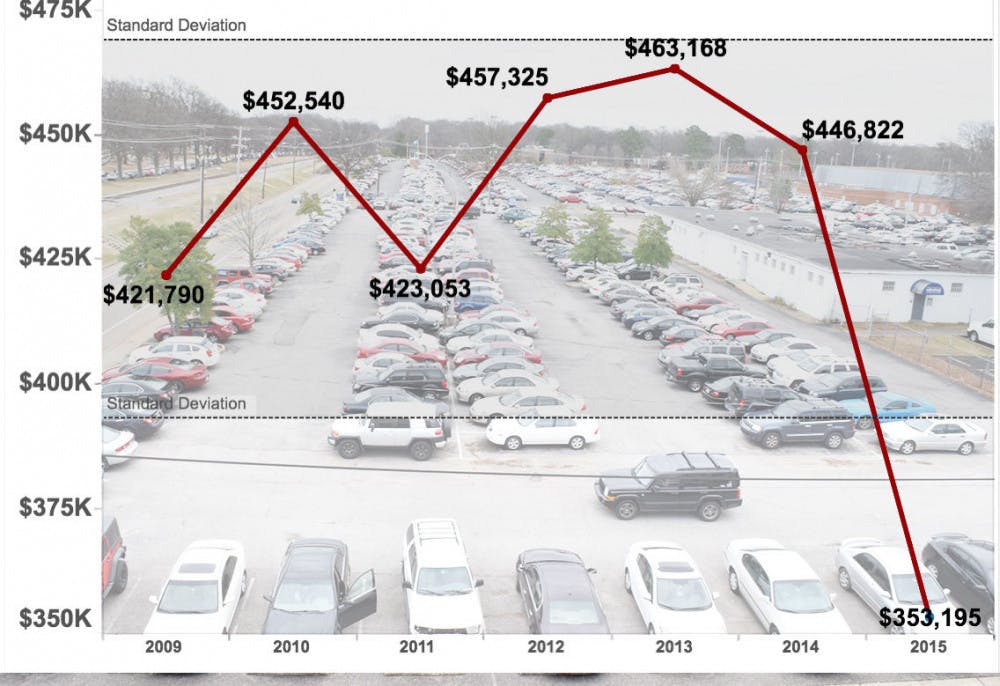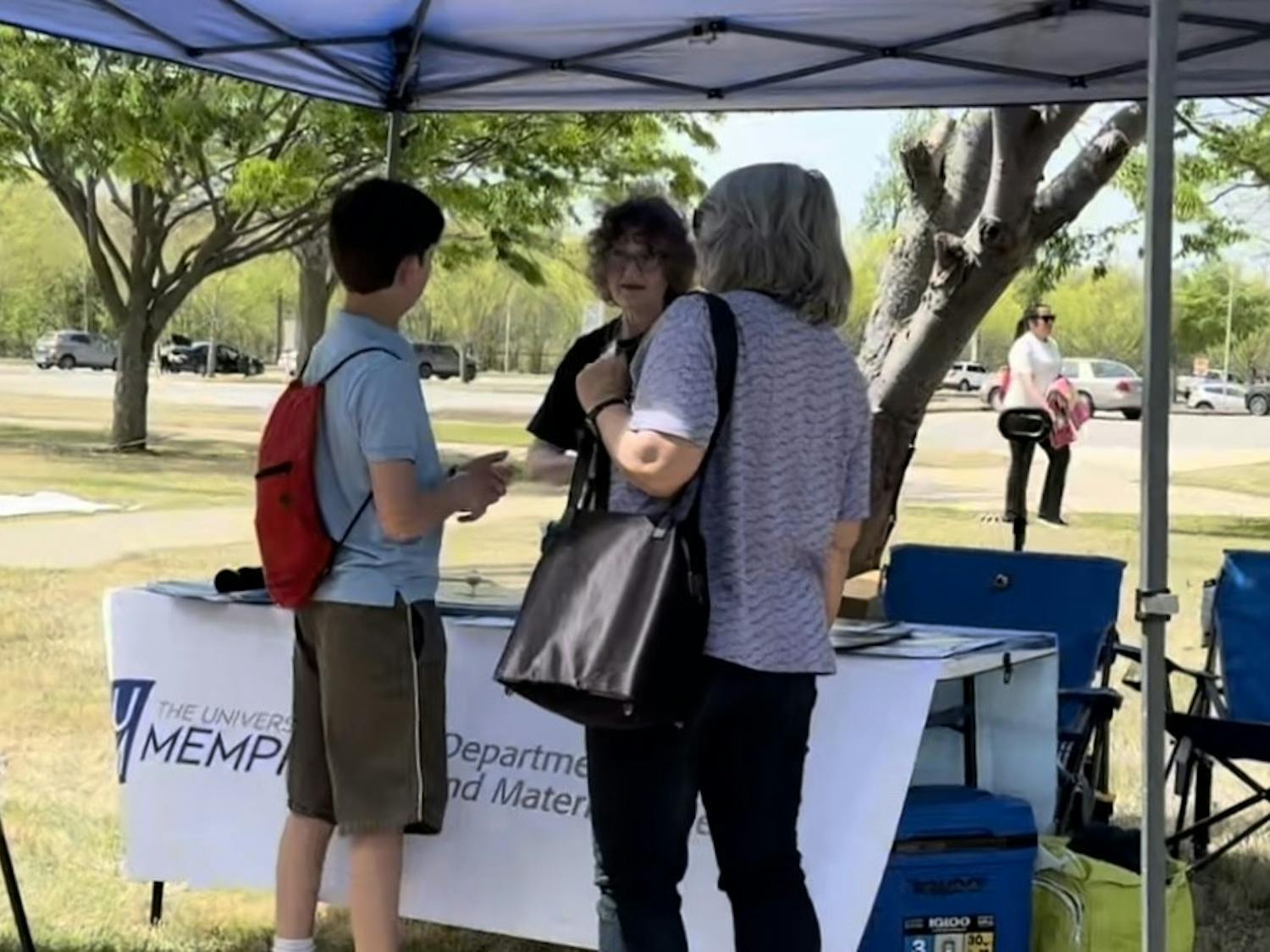The dramatic dive in parking-ticket revenue in the 2015 is statistically significant. Every revenue report before this 2015 was no more than $35,000 more or less than the seven year average, which is the expected variation. But parking-ticket revenue in 2015 was more than $70,000 below the seven-year average. This indicates that a substantial change outside of normal occurrence happened during this year that caused this drop. Data from the U of M department of parking organized by Jonathan Capriel.
Commuter students at the University of Memphis paid an average of $19 in parking tickets last year, which was about $5 less than they paid the previous year.
The decline might be because the university’s parking service was too busy to write more tickets.
Overall, the amount of money the university collected in parking tickets decreased by about $94,000 from the 2014 fiscal year to 2015. That’s nearly a 20 percent drop – the biggest decrease in seven years.
These numbers come from the U of M Department of Parking and Transportation’s most recent fiscal year reports and were obtained through the state’s open records law.
>>>$2.6 million in parking tickets: collected by the University of Memphis over 6 years<<<
Why there has been such a dramatic drop in parking-ticket revenue is up for debate, but several possibilities can be eliminated.
The university has not opened any new parking lots and ticket prices have not changed for several years, said Angela Floyd, director of the U of M Parking and Transportation Services.
Floyd said she would like to believe students on campus are becoming better drivers.
“If we are having to write fewer citations, that’s a good thing,†Floyd said. “That means that students on our campus are doing what they should be doing.â€
However, even though the staff that writes tickets has remained about the same size, additional work added to their job may have prevented them from issuing as many tickets as before, Floyd said.Â
“We did do some work with some parking consultants last year that may have pulled some of my staff away,†Floyd said. “But I like to think people are parking better.â€
Part of this work included counting every single parking space on campus, Floyd said. (There are 9,098 spaces on the main campus and 1,060 on the Park Avenue Campus, according to this report written by Kimley-Horn and Associates.)
While shrinking enrollment at the university may have had some effect on parking ticket revenue, it’s likely not the cause of the drop. That’s because U of M enrollment has been on a steady decline of 2 to 3 percent each year since 2012. The dive in parking ticket revenue in the 2015 was nearly 20 percent.
Furthermore, there appears to be little correlation between a decrease in commuter students at the U of M and amount of money the university collects from parking.
 “I have not dug into it or done the research to find out why it’s so low,†Floyd said. “I would need to do an analysis to find out why.â€
It’s possible the U of M collects some parking ticket money from non-students who do not work for the university. However, the likelihood is not high.
That’s because most of the people who park on campus either work or take classes at the U of M.Â
University employees’ pay is docked and students will have a charge added to their account at U of M’s Bursars Office. Students will not be allowed to enroll in classes or graduate unless all their parking fines are paid. Â
Because the Bursar’s Office and U of M payroll automatically charges students and staff, the parking department gets revenue from tickets during the same year the ticket was written – it does not matter if the violator pays the ticket on time.
This means that the amounts shown on the parking department’s sheets represent a more accurate number of tickets written during the fiscal year. Â
The sudden drop in parking-ticket revenue in the 2015 is statistically significant, meaning it falls outside of realm of natural occurrence.
This indicates that a substantial change happened during this year that caused this drop.
Floyd said her department does not rely on parking ticket money to fund itself. The percentage of the department’s income that comes from parking fees has dropped during the last year. Parking fees made up about 12 to 15 percent of U of M’s parking revenue from 2009 to 2014. In the most recent year, parking made up only 9 percent of the department’s total revenue.
It’s worth noting the University of Memphis’s parking situations will get a little tight in the coming semesters when construction on the new recreation center begins.Â
The U of M is planning to build a $18.6 million parking garage to make up for the lost spaces. Parking fees will increase from $42 a semester to $68 for most students in order to pay for the project.Â




